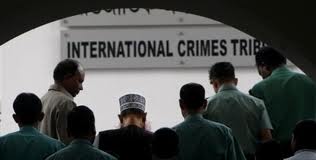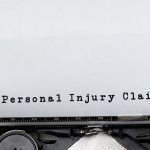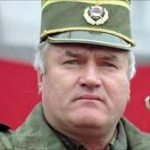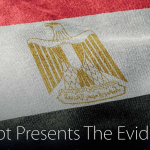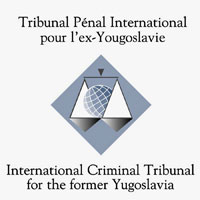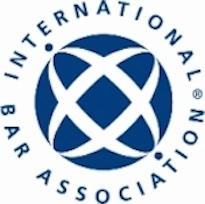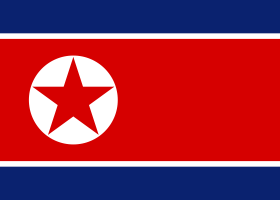Warning: graphic information in this report may upset some readers
A new report, authored by three internationally renowned judges – Navanethem ‘Navi’ Pillay, Thomas Buergenthal and Mark B Harmon – under the auspices of the International Bar Association (IBA) War Crimes Committee, calls on the international community to vest in the International Criminal Court (ICC) or a special international tribunal the power to investigate crimes against humanity committed in North Korea’s political prisons, and to hold culpable parties accountable for their crimes, including ‘Supreme Leader’ Kim Jong-un, members of the Workers’ Party of Korea and its Politburo, internal security officials and prison guards. The three judges, who together have served on some of the most consequential international tribunals of the last half-century and include a child survivor of Auschwitz and a former ICC judge, also call on North Korea to dismantle its gulag system and release the estimated 80,000-130,000 political prisoners.
Under established legal doctrine, including the principle of ‘command responsibility’ – hierarchical accountability, where superiors are held responsible for the criminal acts of their subordinates – the report includes evidence that demonstrates Kim Jong-un and other regime officials should be prosecuted for ten of the 11 crimes against humanity enumerated in the Rome Statute (the treaty establishing the ICC), including crimes committed by subordinates such as prison guards. The ten crimes are: murder, extermination, enslavement, forcible transfer, imprisonment, torture, sexual violence, persecution, enforced disappearances and other inhumane acts.
Titled, Inquiry on Crimes Against Humanity in North Korean Political Prisons,the report focuses on evidence of crimes against humanity committed in North Korea’s political prisons, which include systematic murder (including infanticide), torture, persecution of Christians, rape, forced abortions, starvation and overwork leading to countless deaths. Referenced in the report is highly detailed satellite imagery that, alongside testimony of defectors, debunks North Korea’s denial of the existence of its political prisons, described by Amnesty International as ‘very possibly home to some of the most appalling torture in the world’.
The Inquiry is an unofficial follow-up to the United Nations Human Rights Council’s Commission of Inquiry (UN COI) on Human Rights in the Democratic People’s Republic of Korea (DPRK) that, in 2014, published its findings on regime-wide human rights abuses.
During a day-long hearing held in Washington, DC in 2016, Chief Judge Navi Pillay and her fellow judges heard testimony from North Korean defectors, including a North Korean political prison guard and prison camp survivors. They provided graphic testimony of atrocities they witnessed or were subjected to in the political prisons, including accounts of:
- prisoners tortured and killed on account of their religious affiliation, with officials instructed ‘to wipe out the seed of [Christian] reactionaries’;
- a prisoner’s newborn baby, fed to guard dogs and killed;
- an abortion induced by three men standing on a wooden plank placed on a pregnant prisoner’s stomach;
- a female prisoner losing consciousness after enduring a beating designed to trigger premature labour, with prison officials killing her baby before she could regain consciousness;
- a prisoner raped by a security officer, after which the officer pushed a wooden stick inside her vagina and beat her lower body, resulting in her death within a week;
- the deliberate starvation, malnutrition, overwork and death of countless prisoners, including between 1,500-2,000 prisoners, mostly children, who are believed to have died each year from malnutrition in one camp alone, with many other prisoners beaten to death for failing to meet production quotas;
- a soldier supervising a forced labour site rolling a log down a steep mountainside, killing ten prisoners as they were carrying logs up the mountain;
- routine public executions of prisoners, carried out in front of both children and adults, designed to subdue the prison population;
- the execution of starving prisoners found digging for edible plants on a mountainside; and
- the beating to death of a prisoner for hiding stolen corn in his mouth.
Alongside personal testimonies, the Inquiry drew on other sources of evidence, including scholarly works, videos, transcripts, testimony provided to the UN COI, and the live testimony of two leading experts on North Korea’s network of political prisons and its political system, David Hawk and Kenneth Gause. These and other experts have written about North Korea’s longstanding policy of imprisoning the children, spouse, parents and other family members of a purported violator in order to eliminate the ‘seed’ of three generations of ‘class enemies’.
Following the hearing in December 2016, the Inquiry received a detailed affidavit from Mr Thae Yong-ho, North Korea’s former Deputy Ambassador to the United Kingdom, and its highest-ranking defector in recent years. Mr Thae’s detailed affidavit provided damning testimony about Kim Jong-un and regime officials, and their level of involvement in committing grave human rights abuses.
Among the nine recommendations made by Judges Pillay, Buergenthal and Harmon in the new report are:
- the dismantlement of the DPRK political prison system and commitment to a new system of fair and transparent justice that affords proper due process to its citizens and acceptance of an international monitoring scheme that ensures the present political prison system remains dismantled;
- the implementation of safeguards by UN member states to prevent the importation of products produced in the North Korean penal system; and
- the adoption of carefully targeted, coordinated and multilateral sanctions against individuals deemed responsible for past or ongoing crimes against humanity in the DPRK.
Steven Kay QC, past Co-Chair of the IBA War Crimes Committee and the lead lawyer to present evidence of North Korea’s alleged crimes against humanity at the Inquiry, stated: ‘ North Korea’s network of political prisons has largely eluded the scrutiny of the international community over the decades but, as the number of North Korean defectors swells and accounts of brutal treatment carried out against prisoners are relayed to the outside world, it has become more difficult for the international community to avert its gaze.’ He added: ‘The international community should not be deterred from holding to account the perpetrators, from prison guards to those seated at the apex of power. We need to work to halt the seven-decade reign of impunity.‘
A discussion of the Inquiry’s findings will take place in Washington DC, today, 12 December, from 9:30am-10:45am at the National Press Club. For more information about the event and/or to register attendance please contact Sosseh Prom at [email protected].
Supplied by the International Bar Association (IBA)
Image source: www.martindale.com
